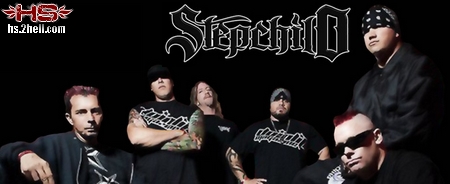"...The band was formed in the neighborhood of Grajaú in 1990.
The name was
taken from one of the pavilions Carandiru prison.
Two years later, the group
released their first album: Primeiro Ato.
One of the songs on the album,
entitled Otários Fardados generated enough controversy.
Disgusted with the letter,
the police ended up finding the phone and started to threaten
label the band.
[Citation needed] For security reasons, vocalist Rho$$i (started adopting this spelling)
and the other members began to present hiding his face behind caps, masks and
paintings
hockey player.
In 1994, Hall 9 released their second album,
Procurados Vivos Ou Mortos by Music Paradoxx.
Three years later, the same label,
the group recorded Cadeia Nacional, recorded, mixed
and produced by
Beto Machado (Bob Mac). With lyrics that talk about social problems
faced in
suburbs of large cities and criticism of police violence, the Pavilhão 9 again
generating controversy with his 1999 album, Se Deus Vier,Que Venha Armado
which
had the image of Jesus Christ on the cover . Apart from the reaction of
the Catholic Church
and conservative politicians, the CD also generated the end
of the contract with the label Paradoxx.
In 2000, they signed a contract with
Warner Music. In the presentation at Rock in Rio in 2001,
vocalist Rho$$i and
the other members made ??their first public appearance without disguise,
after ten years using a cap ninja..."
2012
"...
After five years away from the stage, the rap group Pavilhão 9 resumed its
original lineup
to perform at the Lollapalooza festival. As the group's heyday
in the '90s, when they wore masks
to protect their identity, members of the
Pavilhão took the stage wearing
accessory and presented their best known tracks
. The hit Otários Fardados - direct criticism of Police of São Paulo -
appealed
to nostalgic fans and also the security of the stage, which is controlled not to sing
and jump.
"We started masked, but now is the clean face,"said vocalist to boot adornment..."
SOME VIDEOS:
ALBUMS:












































